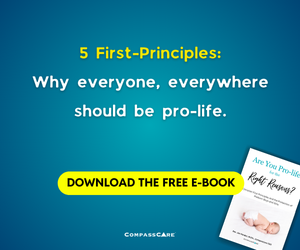A judge has issued a ruling confirming that the state of West Virginia can ban the dangerous abortion pill to protect women and save babies from abortions.
The abortion drug manufacturer GenBioPro filed a lawsuit that challenges a ban on abortion drugs in West Virginia. GenBioPro, which manufactures the generic chemical abortion drug mifepristone, asked the court to render the state’s pro-life laws unconstitutional, claiming that Congress gave the Food and Drug Administration the power to mandate nationwide access to dangerous chemical abortions—preempting West Virginia’s duly-enacted pro-life laws that protect the lives of the unborn and mothers.
But a federal district court Thursday partially dismissed the lawsuit.
West Virginia Attorney General Patrick Morrisey, assisted by Alliance Defending Freedom attorneys, asked the court to uphold the state’s Unborn Child Protection Act and other pro-life legal provisions. The court rejected BenBioPro’s claims, ruling that the state is free to pass and enforce pro-life laws.
The only part of the state’s near-total protection for life that the court found could still be challenged is the law ensuring women see a physician in person before receiving chemical abortion drugs. But that is an important provision because women could die without an in-person visit f they have an undiagnosed ectopic pregnancy or if they are further along than the window for usage of the drug. West Virginia had amended its law to prohibit telehealth practitioners from “prescribing or dispensing an abortifacient,” so now the lawsuit will proceed only as it regards that prohibition.
REACH PRO-LIFE PEOPLE WORLDWIDE! Advertise with LifeNews to reach hundreds of thousands of pro-life readers every week. Contact us today.
“As I have said all along, the new Unborn Child Protection Act is constitutional; I am pleased the court saw it the way we did,” Attorney General Morrisey said. “While it may not sit well with manufacturers of abortion drugs, the U.S. Supreme Court has made it clear that regulating abortion is a state issue, and I will always stand strong for the life of the unborn.”
ADF attorneys celebrated the ruling.
“West Virginia has a strong and compelling interest in protecting unborn life, maternal health and safety, and the integrity of the medical profession,” said ADF Senior Counsel Erin Hawley, vice president of the ADF Center for Life and regulatory practice, who argued before the court on behalf of West Virginia. “It’s unacceptable for the manufacturer of a dangerous drug to put profit over the lives of pregnant women and their unborn children. Neither GenBioPro nor the FDA has the authority to set national abortion policy.”
In a brief supporting the motion to dismiss filed with the U.S. District Court for the Southern District of West Virginia, Huntington Division, Attorney General Morrisey and ADF attorneys noted that, contrary to GenBioPro’s arguments, nothing in the text of the federal Food, Drug, and Cosmetic Act “suggests that Congress authorized FDA to exercise such extraordinary power to displace states in addressing matters of health care practice and prescriptive authority, let alone over the social and political issue that is abortion.”
“Congress has not expressed an intent to occupy the field of drugs subject to a [Risk Evaluation and Mitigation Strategy] in a manner which would preempt West Virginia’s abortion restrictions,” the court wrote in its decision in GenBioPro v. Sorsaia.
Last year, after the U.S. Supreme Court overturned Roe v. Wade, West Virginia largely replaced its previous regulation of abortion with the Unborn Child Protection Act, making abortion illegal except in a few rare instances. Further, any licensed medical professional who violates the statute can lose his or her license. West Virginia also amended its criminal law to prohibit any non-licensed medical professional from performing abortions, prohibit telehealth practitioners from “prescribing or dispensing an abortifacient,” and require health care boards to adopt implementing rules for the restriction.
In a separate lawsuit, ADF attorneys representing four medical associations and four doctors have so far prevailed in challenging the FDA’s illegal removal of vital safeguards on chemical abortion drugs that harm women and girls.
Abortion drugs are not safe for women.
“Mail-order abortion drugs have become a leading health risk to mothers and babies, with the chemical abortion pill regimen posing a 53% greater risk of an ER visit due to abortion complications compared to surgical abortion. The Biden-Harris FDA betrayed women by siding with the abortion industry and ignoring science, which points to the great need for oversight of dangerous abortion drugs,” said Marjorie Dannenfelser, president of SBA Pro-Life America. “Fifteen states have strong laws in effect protecting unborn children and their mothers from the horror of abortion. We stand with the people of North Carolina and West Virginia against the abortion lobby’s reckless push to mandate abortion on demand in every state. The FDA must do its job and safeguard Americans from this dire public health threat.”
Dr. Ingrid Skop, M.D., a board-certified OB/GYN and Director of Medical Affairs at Charlotte Lozier Institute, added:
“Just two weeks ago, I performed emergency surgery on a woman suffering from abortion pill complications. This was not an isolated incident. I know from personal experience as well as review of high-quality international studies that abortion pills can lead to hemorrhage, an unusual form of infection, complications in future pregnancies, retained pregnancy tissue and the need for follow-up surgery.
“Too often, abortionists give women the abortion pill and then wash their hands of any follow-up. It’s obstetrician-gynecologists like me who are left to treat the damage, and women who bear the emotional consequences. The abortion pill is a public health threat and it’s past time for the FDA to pay attention.”
In November, pro-life doctors filed a lawsuit accusing the FDA of ignoring the dangers when it approved the abortion drug in 2000 and expanded its use in 2021.
Dr. Christina Francis, CEO of the American Association of Pro-Life OB-GYNs, told the New York Times that the federal agency “cherry-picked studies that don’t actually look at the full picture” under the Clinton and Biden administrations, both of which are pro-abortion.
The FDA is “actively endangering the lives of women and girls in the country, especially as they continue to remove safeguard after safeguard,” Francis said.
Along with millions of unborn babies’ deaths, the FDA has linked mifepristone to at least 26 women’s deaths and 4,000 serious complications between 2000 and 2018. However, under President Barack Obama, the FDA stopped requiring that non-fatal complications from mifepristone be reported. So the numbers almost certainly are much higher.
Studies indicate the risks are more common than what abortion activists often claim, with as many as one in 17 women requiring hospital treatment. A recent study by the Charlotte Lozier Institute found that the rate of abortion-related emergency room visits by women taking the abortion drug increased more than 500 percent between 2002 and 2015.
Another new study from the University of Toronto, “Short-Term Adverse Outcomes After Mifepristone–Misoprostol Versus Procedural Induced Abortion,” published in the Annals of Internal Medicine, found that one in ten women who took the abortion drugs had to go to the emergency room, according to Pregnancy Help News.
In England, which began allowing mail-order abortion drugs around the same time as the U.S., new investigations show a huge increase in ambulance calls and reports of coercion and abuse. There also have been reports of late-term babies being born alive at home as a result of mail-order abortion drugs because their mothers did not realize how far along they were.








